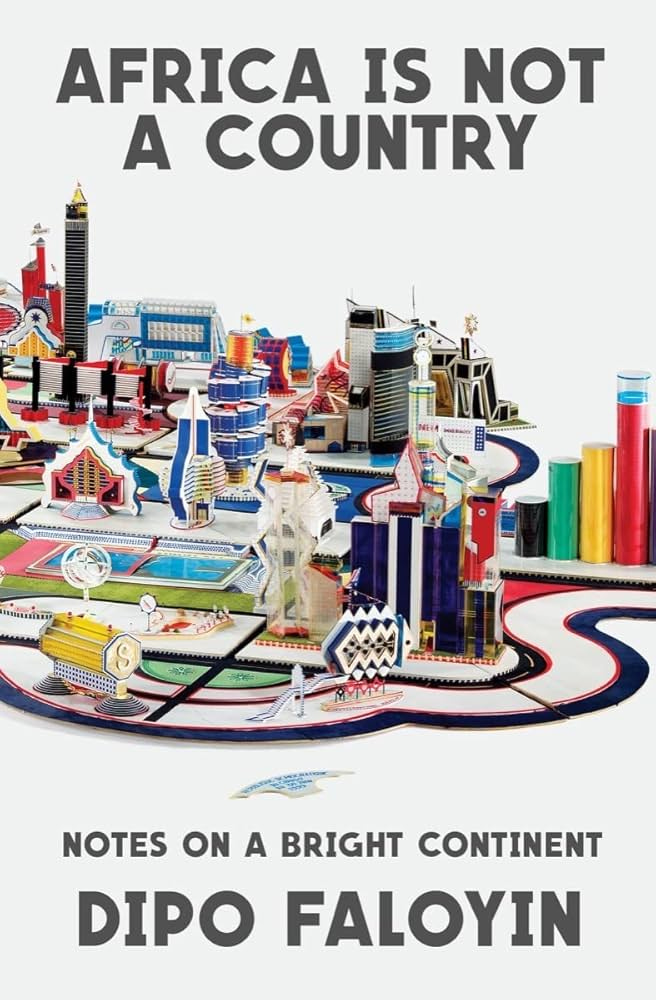This week…
Your reading time is about 7 minutes. Let’s start.

From A6’s Kevin McSpadden (original note):
The narrative of “America deserves Trump, the world does not” is a fundamentally flawed argument that betrays ignorance of the world beyond DC.
It is a fantastic headline that captures attention and conveys a clear idea. But it’s not accurate.
I lived in Asia for a decade, and, if he had been a citizen of a given country, he would have won most of the elections in that part of the world. When I would mention I am American, most strangers inevitably followed with “Trump,” but often would wax poetic about the man.
Rodrigo Duterte was essentially Trump, and he always had a high approval rating despite literal extrajudicial killings. Bolsanaro is another example. Millie in Argentina, Imran Khan in Pakistan. The list goes on.
One of the strangest moments of cognitive dissonance for me was when the 2019 Hong Kong protest movement began to feature Trump flags. He was a symbol of rebellion against Beijing. That loyalty stuck, and let’s just say the HK internet is not having a funeral.
The idea that the world meets every American abroad with sympathy or fear is wildly inaccurate. This does not dismiss the election or argue that “we are just like everyone else.” Rather, it is to push back on one specific idea: that the world is looking at America in horror. It’s really not, even if that is an uncomfortable truth.
He’s right. That tiring narrative is very white saviorism. (Uh, clean up your own backyard?) I need those clever people who write satirical posts about the US like it’s a ‘third-world’ country.
Anyway, I had a small surge of new subscribers. I think people are leaving XTwitter (again?) out of frustration. I’m not sure if Substack is the right place for you, buddies, but welcome while you’re here. It provided me with the reminder to clean up my subscription list of inactive readers, so if you are here manually because this edition did not go into your inbox, it’s because I have removed you. And if so, tell me, what browser extension are you using to make Substack unable to track your activity?? Don’t be shy, share it with the class!!
Your Wikipedia this week: Paradox of intolerence
And now, a selection of top stories on my radar, a few personal recommendations, and the chart of the week.
ICYMI: The Previous Block was barely a defence of journalism. FWIW:
Is the crime news people crave the crime news they need? by Sophie Culpepper for Nieman Lab.
What audiences really want: For journalists to connect with them as people by Mark Coddington and Seth Lewis for RQ1.
CORRECTION NOTICE: None notified.ON THE TECHBROS
The age of broligarchy
Natalia Antelava for Coda:
Musk was not the only bro excited by Trump’s victory: Trump’s win is a win for oligarchs, autocrats and their patrons of all shapes and shades everywhere. There was palpable, genuine enthusiasm in tweets from fellow populist leaders in Hungary, India, and Israel. The Kremlin’s official response was tempered but there was no shortage of glee from those who speak on Vladimir Putin’s behalf. Few paid any heed to the FBI allegations that Russia was behind bomb threats at polling stations in battleground states, choosing instead to celebrate “victory over Ukraine” as the inevitable outcome of Trump’s election. “Kamala is finished. Let her keep cackling infectiously. The objectives of the Special Military Operation remain unchanged and will be achieved,” posted Russia’s former President Dmitry Medvedev, referring, of course, to the full scale invasion. No wonder that Volodymyr Zelensky’s message of congratulations to Trump sounded like a plea.
“Fuck!” was the headline in one of Germany’s biggest newspapers, the weekly Die Zeit. But should anyone really be surprised?
Loosely linked:
America’s tech bros now strut their stuff in the corridors of power by Carole Cadwalladr for The Guardian.
Governments are pushing teen social media bans—but behind the scenes is a messy fight over science by Gideon Meyerowitz-Katz (University of Wollongong) and Matthew B. Jané (University of Connecticut) for The Conversation.
AI bros terrified singularity will hit will Trump is president by Noor-Al Sibai for Futurism.
ON THE INTERNET
Mozilla is eliminating its advocacy division, which fought for a free and open web
Gaby del Valle for The Verge:
The Mozilla Foundation laid off 30 percent of its workforce and completely eliminated its advocacy and global programs divisions, TechCrunch reports.
While Mozilla is best known for its Firefox web browser, the Mozilla Foundation—the parent of the Mozilla Corporation—describes itself as standing up “for the health of the internet.” With its advocacy and global programs divisions gone, its impact may be lessened going forward.
“Fighting for a free and open internet will always be core to our mission, and advocacy continues to be a critical tool in that work. We’re revisiting how we pursue that work, not stopping it,” Brandon Borrman, the Mozilla Foundation’s communications chief, said in an email to The Verge. Borrman declined to confirm exactly how many people were laid off, but said it was about “30% of the current team.”
This is Mozilla’s second round of layoffs this year. Loosely linked:
As Firefox turns 20, Mozilla ponders how to restore it to its former glory by Frederic Lardinois for Tech Crunch.
Wikipedia says hasn’t received notice over alleged bias concerns from India by Manish Singh for Tech Crunch.
Canada orders Tiktok closure (the business, not the app) over ‘security concerns’ by Dan Milmo for The Guardian.
South Korea fines Meta $15 million for illegally collecting information on Facebook users by Kim Tong-Hying for AP.
South Korea fights deepfake porn with tougher punishment and regulation by Hyung-Jin Kim for AP.
Other curious links, including en español et français

LONG READ | What we lose by being overly scientific about healthcare by Ana Todorović for Psyche.
INFOGRAPHIC | The slow, steady, frustrating, relentless, remarkable rise of Reddit by Millie Giles and David Crowther for Sherwood.
PHOTO ESSAY | Bland, soggy slop or scratch-cooked chilli and pancakes? The best and worst hospital food around the world by Caroline Kimeu, Kitty Drake, Stephen Burgen, Justin McCurry, Miranda Bryant, Natasha May, Tiago Rogero, Clarissa Wei, and Alessandra Maggiorani for The Guardian.
Within less than a decade, Brazil will have as many evangelicals as Catholics, a transcendence born of the prosperity gospel by Alex Hochuli for Aeon.
Why the German government collapsed and what to expect now by Katharina Karcher (University of Birmingham) for The Conversation.
El ‘periodismo de algoritmo’ ataca de nuevo: así es como titulares engañosos y supermercados inundan los medios por Carlos del Castillo en elDiario.es.
Lo que Silicon Valley pudo ser por Carles Planas Bou en WATIF.
Detrás está la gente por Miguel Ángel Ortega Lucas en CTXT.
Intimité forcée : fin de partie dans les réseaux sociaux ? par Laurent François dans En vivance.
Comment ces créateurs de contenu bousculent l’information traditionnelle par Anne Cordier dans Méta-Media.
L’éducation ne doit pas s’adapter à la techno-économie ($) par Éric Martin dans Le Devoir.
What I read, listen, and watch
I’m reading Africa Is Not a Country (2022) by Dipo Faloyin. Sometimes, it just has to be spelt out. And even so, you can lead a horse to water…
I’m listening to On The Media about the manosphere’s win and how to survive an autocracy.
I’m watching Kenya’s exploding manosphere by Al Jazeera. (Yes, go ahead, read the comments.)
Chart of the week
From the Sherwood piece above, a visualisation of the social media hype cycle worldwide between 2004 and 2024 by Google Search volume:



